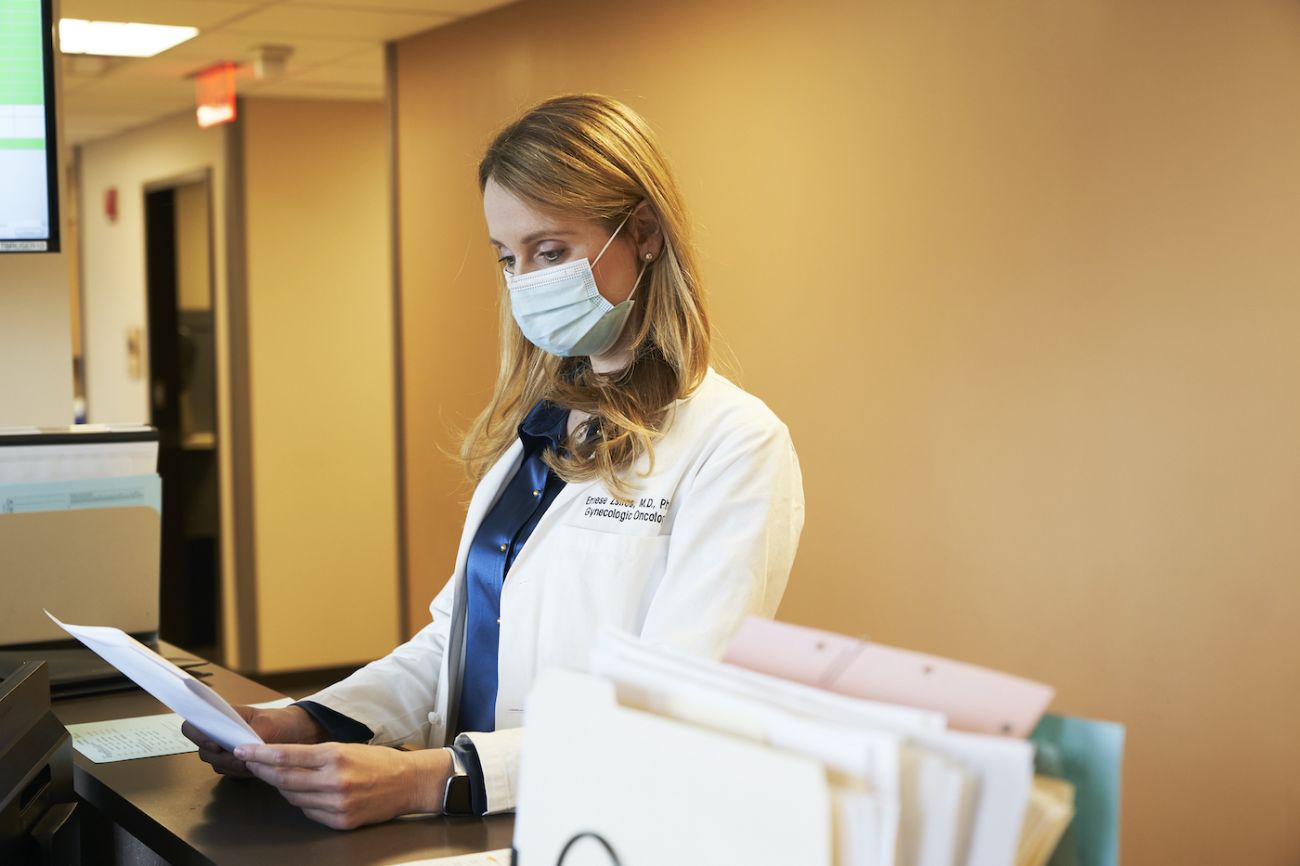Having a healthy lifestyle and seeking routine healthcare is important to protect yourself from many cancer types, including endometrial cancer. In addition, learning whether you have any of the risk factors for these cancers and taking steps to reduce any that are modifiable, is important. Consider the following:
- Seek routine gynecologic care. Even if you’re past your childbearing years, women should see a gynecologist for an annual checkup and exam. Alert your physician to any abnormal bleeding — bleeding or spotting between periods, bleeding after menopause, or abnormal discharge right away.
- Maintain a healthy weight. Women who are overweight or obese are up to six times more likely to develop uterine cancer.
- Get regular exercise. Women with higher levels of physical activity have lower risk for endometrial cancer. In addition, exercise can lower your risk for other uterine cancer risk factors — obesity, high blood pressure and diabetes.
- Consider your family planning choices. Interestingly, the following factors are associated with reduced risk for uterine cancer:
- Pregnancy
- Breastfeeding
- Taking oral contraceptives
- Be cautious with hormone therapy for menopause. Talk to your physician about your options for managing extreme menopausal symptoms. Taking estrogen, in the form of pills, patches, shots, creams or vaginal rings, increases the risk for uterine cancer. While adding the hormone progesterone to the estrogen may alleviate this increased risk, the combination increases risk for breast cancer.
- Seek treatment for uterine problems. Abnormal overgrowth of the uterine lining, a condition called endometrial hyperplasia, can develop into endometrial cancer. Treatment may include hormone therapy, placement of a progesterone-releasing IUD or hysterectomy (removing the uterus by surgery).
- Consider hysterectomy if you have Lynch Syndrome. Women who have Lynch Syndrome (also called hereditary nonpolyposis colon cancer) are at very high risk for developing several cancer types, including endometrial cancer.
If you have Lynch Syndrome…
Women who have this genetic condition have a 60% chance of developing endometrial cancer and tend to be diagnosed with the disease 10 to 20 years younger than women who don’t have the syndrome. If you have Lynch Syndrome, you should consider the following to steps for early detection and prevention of endometrial cancer:
- Endometrial biopsy, yearly starting at age 35
- Preventive surgery, such as hysterectomy to remove your uterus and bilateral salpingo-oophorectomy to remove your fallopian tubes and ovaries after childbearing is complete. These surgeries can be performed in a single operation.
Why no screening for uterine cancer?
Unlike the Pap test for cervical cancer or a mammogram for breast cancer, there is no approved screening test to detect uterine cancer in women who don’t have any symptoms. For this reason, it’s very important to seek routine gynecologic care and inform your provider of any symptoms and changes to your personal or family history.

